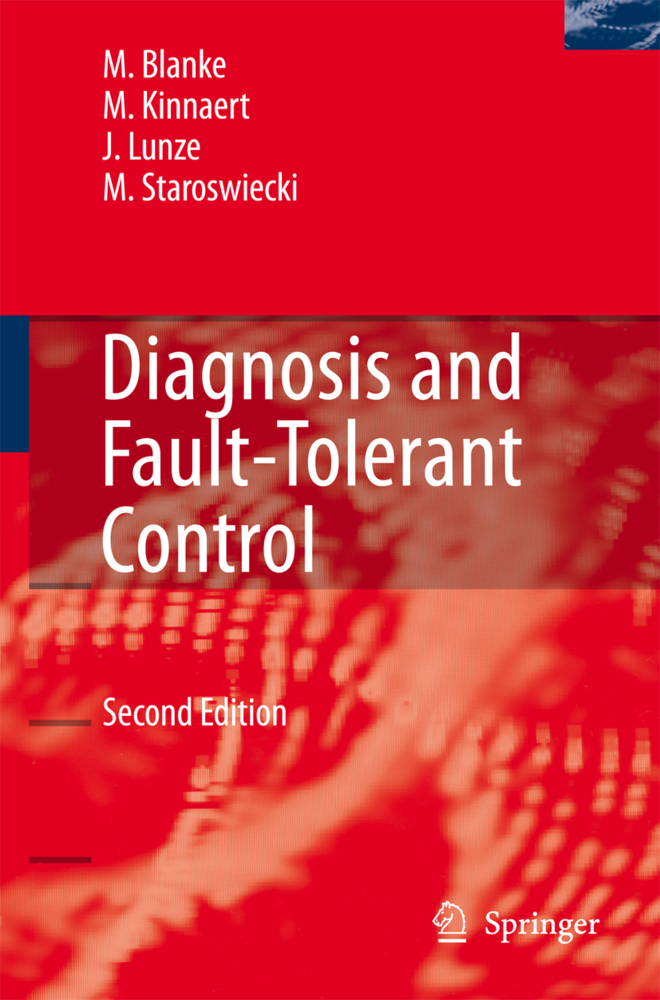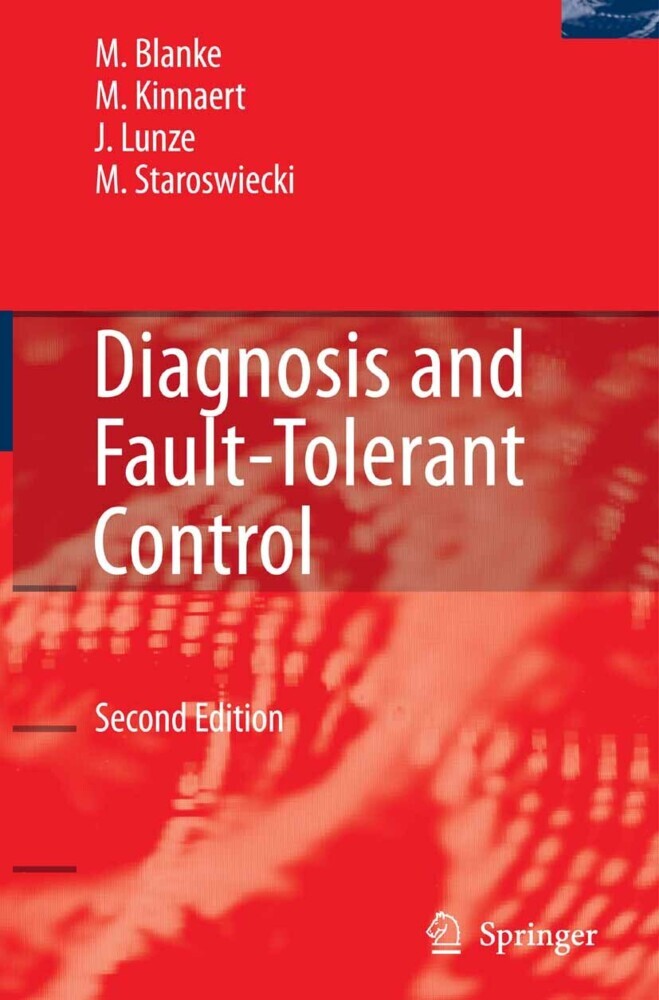Diagnosis and Fault-Tolerant Control
Diagnosis and Fault-Tolerant Control
Fault-tolerant control aims at a graceful degradation of the behaviour of automated systems in case of faults. It satisfies the industrial demand for enhanced availability and safety, in contrast to traditional reactions to faults that bring about sudden shutdowns and loss of availability.
The book presents effective model-based analysis and design methods for fault diagnosis and fault-tolerant control. Architectural and structural models are used to analyse the propagation of the fault throught the process, to test the fault detectability and to find the redundancies in the process that can be used to ensure fault tolerance. Design methods for diagnostic systems and fault-tolerant controllers are presented for processes that are described by analytical models, by discrete-event models or that can be dealt with as quantised systems. Five case studies on pilot processes show the applicability of the presented methods. The theoretical results are illustrated by two running examples used throughout the book.
The second edition includes new material about reconfigurable control, diagnosis of nonlinear systems, and remote diagnosis. The application examples are extended by a steering-by-wire system and the air path of a diesel engine, both of which include experimental results. The bibliographical notes at the end of all chapters have been up-dated. The chapters end with exercises to be used in lectures.
to diagnosis and fault-tolerant control
ExamplesModels of dynamical systems
Analysis based on components and architecture
Structural analysis
Fault diagnosis of continuous-variable systems
Fault-tolerant control of continuous-variable systems
Diagnosis and reconfigurable control of discrete-event systems
Diagnosis and reconfiguration of quantised systems
Application examples.
Blanke, Mogens
Kinnaert, Michel
Lunze, Jan
Staroswiecki, Marcel
Schröder, J.
| ISBN | 978-3-642-07136-2 |
|---|---|
| Artikelnummer | 9783642071362 |
| Medientyp | Buch |
| Auflage | 2nd ed. |
| Copyrightjahr | 2010 |
| Verlag | Springer, Berlin |
| Umfang | XIX, 672 Seiten |
| Abbildungen | XIX, 672 p. 270 illus. |
| Sprache | Englisch |








